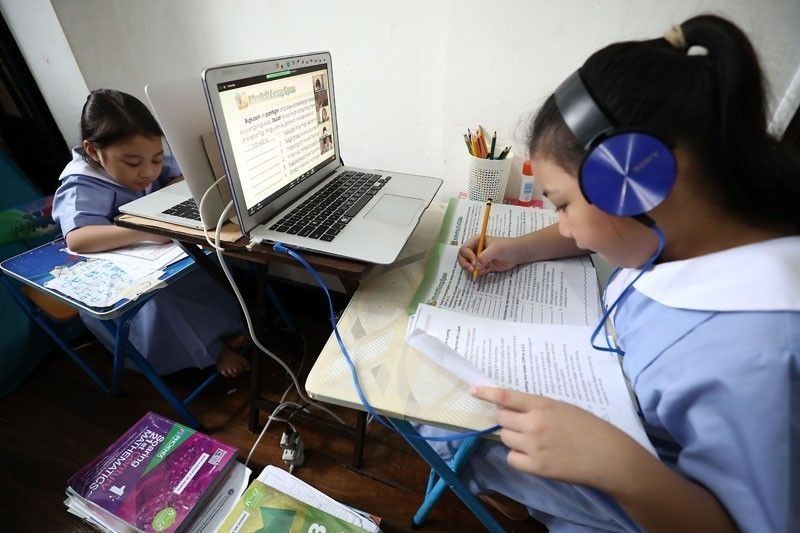Information literacy: Learning to spot what is and what isn’t online

With the Department of Education’s official opening date for School Year 2021-2022 just around the corner, students around the country are probably now psyching themselves up for the end of their summer breaks.
By mid-September, gone will be the days of waking up late, lazy afternoons and binge-watching TV shows till midnight. Instead, they’ll be replaced by the insistent ringing of alarm clocks, homework, essays and exams. What joy.
However, in addition to psyching themselves up, students and parents alike will also be gearing up for the start of school. With face-to-face classes still prohibited, students in the Philippines will be attending their classes from home.
So instead of the usual notebooks, pad paper and rulers, many students this year will be making sure their desktop computers or laptops are updated, that the mics on their headphones are working, and that their internet service is reliable enough to sustain a group call.
This year, millions of Filipino students will be attending classes online. And while this is the second straight school year of e-learning, the risks and challenges that have come along with this shift to e-learning still linger.
In a statement from the advocacy group Telecom Tower Watch, Orlando Oxales said, “the shock of the lockdowns revealed how the gaps in connectivity, equipment, ICT skills of teachers, the learners and even their parents were not ready for the quick shift to e-learning.”
As Oxales pointed out, connectivity is one of the significant challenges that students and teachers now face in the remote learning setup. Suddenly, mobile data signal, WiFi availability, and the means to access these services have become pre-requisites to going to school.
But where has this shift left students who live in remote and unconnected areas? What about those without the financial means to pay for these internet services?
One solution has been to rely on private sector partnerships such as the one between Globe Telecom and the Department of Education (DepED) in Cebu.
Through the collaboration, the telecommunications firm will be constructing 26 new cell sites specifically to support the government’s online learning initiatives. The project will provide internet connectivity to thousands of students and teachers in the neighboring communities and will extend free services to schools in the area, too.
While the private telecommunications sector continues to partner with various local government units to improve services and deliver free internet access in partner communities, these still only result in pockets of improved connectivity.
At the end of the day, adequate government funding for the National Broadband Program, the Free WiFi for All Program, and the Common Tower Initiative of the Department of ICT are critical to driving wider internet access.
Connectivity, however, is not the only challenge faced by e-learners. Unfortunately, the internet can be a dangerous place for young people.
Among the risks they face online are cyberbullying, data privacy threats and exposure to disinformation. Without the right skills, these threats could have serious emotional and behavioral consequences. And because of COVID-19, the risk of exposure to these threats has increased because learners are online more now than ever.
Take the risk of exposure to disinformation, for example. According to Hootsuite, in 2020, Filipinos were the top users around the globe of the internet and social media. The report also found that Google, Facebook and YouTube were the most visited sites and that around 10% of the country’s social media audience are young people between the ages of 13 and 17.
With the amount of time spent on the internet and the growing number of sources of information online, there is a big chance that these young people are increasingly exposed to disinformation and misinformation online. And without the proper digital skills, such as information literacy, it can be difficult to distinguish between fact, opinion, or fake news.
Information literacy — which includes both digital and media literacy — means having the ability to think critically to effectively find, identify, evaluate and use information that you are confronted with online. Developing these digital skills is essential in today’s world and is crucial in the fight against disinformation.
As expected, the education sector plays a vital role in developing these skills. By incorporating digital and media literacy into the classroom, students can be equipped with the skills to understand the risks they face online and safely navigate through their increasingly digital environment. Teachers, understandably, play a crucial role here too, and they must receive the proper training.
For this reason, the government must sustain the DICT and DepED’s Digital Learners and Teachers Project, the ICT Academy Project under the Digital Workforce Initiative for the upskilling of Filipino workers in Information Technologies, and the DICT’s educational portal implemented with Microsoft for online ICT training of civil servants to allow career advancement and enhance key public services.
According to the statement of Telecom Tower Watch, ”the upgrading of our digital infrastructure and services must be matched with capacity building in terms of skillsets and enabling policies that are compatible to the innovative and competitive environment of the growing digital economy.”
Indeed, as our society becomes more digital, access to digital opportunities must reach more Filipinos. But, at the same time, we must also ensure that young Filipinos develop the necessary skills and knowledge that allow them to think critically, spot risks, and push back against those that seek to take advantage of their platform.
Paco Pangalangan is the executive director of think tank Stratbase ADR Institute.
- Latest

























